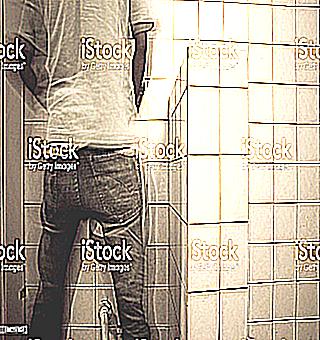Home >
Erectile Dysfunction >
Pinching while urinating in men
Pinching while urinating in men

Pinching during urination in men is quite common. And there is a cure for this ailment.
Painful urination is a broad term that is used to explain the symptoms when painful urination occurs.
Pinching when urinating can be caused by your organs:
- bladder.
- the perineum (in men, the area between the scrotum and rectum).
Reasons when itching when urinating in men
Burning and pinching sensations during urination are common in men of all ages. Pain, burning, or chills can indicate a number of medical factors.
Painful pinching when urinating in men due to a urinary tract infection Painful urination is a typical sign of a urinary tract infection (UTI). UTIs can be caused by a bacterial infection or when the urinary tract becomes inflamed.
Your urinary tract is made up of your urethra, bladder, ureters, and kidneys. Inflammation in any of these organs can cause pain during urination.
Other causes of burning or stinging while emptying urine in men
Other medical factors can cause painful urination in men.
In men, prostatitis or inflammation of the prostate gland is the main cause when it burns or stings during urination.
You may also experience pain when urinating if you have a sexually transmitted infection such as genital herpes, gonorrhea, or chlamydia.
Another cause of painful urination is cystitis, or inflammation of the lining of the bladder. Interstitial cystitis (IC), also known as painful bladder syndrome, is the most common type of cystitis.
IC symptoms include pain and inflammation in the bladder and pelvis. As written in a report from the Kidney and Urology Information Center, healthcare providers often do not understand the cause of IC (NKUDIC).
In some cases, radiation therapy can cause pain in the bladder and urine. This condition is called radiation cystitis.
You may have difficulty urinating if you have kidney stones. Kidney stones are masses of hardened material located in the kidney.
Prostatitis
For such a small gland, the prostate seems to be of great concern. As a troubled, war-torn country, it's all the time on the news and something always feels wrong, but you really don't know where it is or why it's so important to you.
All men are at risk of developing prostate problems. This is because all men have an organ called the prostate. Benign Prostatic Hyperplasia (BPH). BPH, also known as an enlarged prostate, is the growth of the prostate gland to an unhealthy size. A person's chances of getting BPH as they age.
However, only about half of men ever have BPH symptoms that need treatment. BPH does not lead to prostate cancer, although both are common in older men.
Prostate cancer. Prostate cancer is the most common cancer in men (other than skin cancer). About one in six people will be diagnosed with prostate cancer in their lifetime. However, we will keep these figures in perspective. Because prostate cancer usually grows slowly, only about one in 35 men will die from prostate cancer.
Like BPH, the risk of developing prostate cancer increases with age. About two out of every three men with prostate cancer are over the age of 65.
No one knows exactly what causes prostate cancer, but associated risk factors include:
Prostatitis. Unlike most prostate problems. Prostatitis is an inflammation or infection of the prostate gland that is more common in young and middle-aged men. Only 5-10% of men develop prostatitis in their lifetime.
In this case, the main symptoms of prostatitis will be pinching or burning sensation during urination.
Treatment for burning during urine in men
Occasionally, your doctor will prescribe medications to treat a burning or stinging sensation while urinating.
Antibiotics can treat UTIs, bacterial prostatitis, and sexually transmitted infections. Your doctor may also give you medication to relax your irritated bladder.
Drugs used to treat KS include:
- tricyclic antidepressants.
- pentosan sodium polysulfate (elmiron).
- acetaminophen (tylenol) with codeine.
After starting treatment, painful urination caused by bacterial infections usually improves relatively quickly. You should always take your medicine exactly as directed by your doctor for the best results and full recovery.
Pain associated with interstitial cystitis may be more difficult to treat. Rebellion from drug therapy may be slower. In some cases, you may need to take medication for 4 months before you start to feel better.
Lifestyle adjustments to relieve painful urination in men
There are lifestyle changes you can make to eliminate episodes of painful urination.
Some of the main ones:
- Avoid scented laundry detergents and toiletries to reduce the risk of irritation to your genitals.
- use prophylaxis during sexual activity to keep yourself safe from sexually transmitted infections.
- tweak your diet to eliminate foods and drinks that irritate your bladder.
According to NKUDIC, anecdotal evidence suggests that certain foods are more likely to irritate your bladder than others (NKUDIC).
Some irritants to avoid include:
- alcohol.
- caffeine.
- spicy food.
- citrus fruits and juices.
- tomato products.
- Artificial sweeteners.
If you are dealing with pinching or burning while urinating, you should also avoid overly acidic foods to help heal your bladder. Aim to stick to a soft diet for several weeks while you are being treated. Many doctors can write you diets. But it is better to go straight to a professionally trained specialist such as a urologist.



























